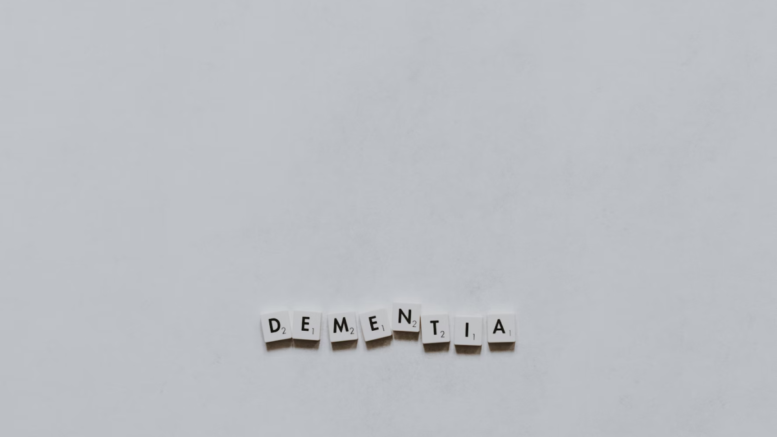Are you or someone you know affected by dementia? Understanding the seven stages of dementia can provide valuable insights into the progression of this condition and help you navigate the challenges that lie ahead.
From mild cognitive impairment (MCI) to end-stage dementia, each stage presents unique symptoms and difficulties. By understanding the many stages of dementia, you can better prepare for the challenges ahead and provide appropriate care and support for your loved one.
Let’s dig deeper into each stage.
Mild Cognitive Impairment (MCI)
MCI, often considered the ‘gray area’ between normal cognitive decline and dementia, can be a subtle yet concerning sign of potential future cognitive decline. It is a stage where individuals may experience mild memory loss and difficulties with thinking and reasoning that are beyond what is expected for their age.
You might notice that you or someone you love is having trouble remembering recent events or appointments, or may find it challenging to concentrate on tasks that used to be easy for you. Other people may also start to notice these changes in your cognitive abilities.
Although MCI can be frustrating and worrisome, it’s important to remember that not everyone who experiences MCI will progress to dementia. In fact, some individuals with MCI may remain stable or even regain some of their cognitive abilities over time. However, it’s crucial to monitor your condition and seek medical advice if you’re concerned about your cognitive decline.
To support your cognitive health during this stage, you can engage in activities that stimulate your brain, such as puzzles, reading, or learning new skills. It’s also essential to maintain a healthy lifestyle, including regular exercise, a balanced diet, and adequate sleep. Staying socially active and connected with friends and loved ones can help improve your overall well-being.
Remember, early detection and intervention can make a significant difference in managing the condition and maintaining a good quality of life.
Early Stage Dementia
In the early stage of dementia, you may notice some changes in your memory and thinking abilities. You might struggle to remember recent events or conversations, or have difficulty finding the right words to express yourself.
You may also experience challenges with problem-solving or making decisions. These changes can be subtle and may not interfere significantly with your daily life, but they are still noticeable.
During this stage, you may become more forgetful and find it harder to keep track of appointments or important dates. You might misplace items more frequently or have trouble following a familiar recipe. You may also start to feel overwhelmed in social situations or withdraw from activities you used to enjoy.

It’s important to remember that everyone’s experience with early stage dementia is unique. Some people may have more pronounced symptoms, while others may have a milder form of the condition. If you or a loved one are experiencing these changes, it’s essential to consult with a healthcare professional for an accurate diagnosis and appropriate support.
Mild Dementia
As you enter the mild stage of dementia, you may notice subtle changes in your memory and thinking abilities. While you may still be able to function independently, you might start to become forgetful of recent events or conversations. You might misplace items more frequently or struggle to find the right words when speaking.
These memory lapses may not be significant enough to interfere with your daily life, but they could be noticeable to you and those close to you.
In addition to memory difficulties, you might also experience some challenges with problem-solving and decision-making. You may find it harder to follow a recipe or manage your finances. It’s important to remember that these changes are a part of the progression of dementia and not a result of a lack of effort or intelligence on your part.
During this stage, it is crucial to establish a support system and communicate your needs to your loved ones. They can assist you in organizing your daily routine and help you maintain your independence for as long as possible. It’s also important to stay mentally and physically active, as engaging in activities that stimulate your brain can potentially slow down the progression of symptoms.
Moderate Dementia
Transitioning into the moderate stage, you may find yourself encountering more frequent memory lapses and experiencing greater difficulty in making decisions and solving problems. At this point, the impact of dementia on your daily life becomes more evident. You may struggle with remembering recent events and conversations, and you might have trouble recalling important details about yourself, such as your address or phone number.
In addition to memory issues, you may also notice changes in your language and communication skills. Finding the right words may become increasingly challenging, and you might struggle to follow or participate in conversations. Your ability to plan and organize tasks may deteriorate, making it harder to carry out daily activities independently.
As moderate dementia progresses, you may also experience changes in your mood and behavior. You might feel more anxious, agitated, or irritable, and you may exhibit repetitive behaviors. You could also become more withdrawn and socially isolated.
Due to these cognitive and behavioral changes, it’s crucial to have a strong support system in place. Caregivers and loved ones can provide assistance with daily tasks, help manage medications, and offer emotional support. It’s important to communicate your needs and concerns to your support network to ensure you receive the necessary care and understanding during this stage of dementia.
Severe Dementia
With severe dementia, daily tasks become increasingly challenging and you may require constant support and assistance. At this stage, memory loss becomes severe, and individuals may struggle to remember even basic information about themselves and their loved ones.
Communication skills also deteriorate significantly, making it difficult for them to express their needs and understand others. Additionally, people with severe dementia may experience significant changes in their behavior and personality. They may become agitated, anxious, or even aggressive, and may exhibit repetitive or compulsive behaviors. In some cases, individuals may also experience hallucinations or delusions.
Physical symptoms such as difficulty swallowing, weight loss, and incontinence become more pronounced as well. As the disease progresses, individuals with severe dementia become increasingly dependent on others for all aspects of daily living, including eating, bathing, and dressing.
It is crucial to provide a safe and supportive environment for individuals with severe dementia, ensuring their comfort and well-being while managing their symptoms and promoting their quality of life.
End-Stage Dementia
Now that you understand the impact of severe dementia, let’s delve into the final stage: end-stage dementia. During this phase, you or your loved one’s cognitive abilities will have significantly declined. You may struggle to communicate, recognize familiar faces, or perform basic tasks. Round-the-clock care and support may be required at this phase.
In end-stage dementia, physical symptoms become more pronounced. Your loved one may experience difficulty swallowing, leading to weight loss and dehydration. They might also develop infections, such as pneumonia, due to a weakened immune system. It’s crucial to monitor their health closely and ensure they receive proper medical attention.
Emotionally, your loved one may appear distant and withdrawn. They may no longer respond to their surroundings or recognize their own family members. It can be heartbreaking to witness, but remember that your presence and love still matter, even if they can’t express it.
As a caregiver, it’s important to focus on providing comfort and maintaining their quality of life. This can include creating a soothing environment, engaging in sensory activities, and ensuring they’re pain-free. Hospice care may be a consideration during this stage to ensure their comfort and dignity.
Remember, while end-stage dementia is challenging, your support and care can make a significant difference in your loved one’s journey.
Conclusion
By familiarizing yourself with these stages, you can better prepare and support your loved ones throughout their journey. If you are the person experiencing these symptoms, it’s best to consult with a medical professional and to seek your family’s help. You don’t have to face this illness alone.
